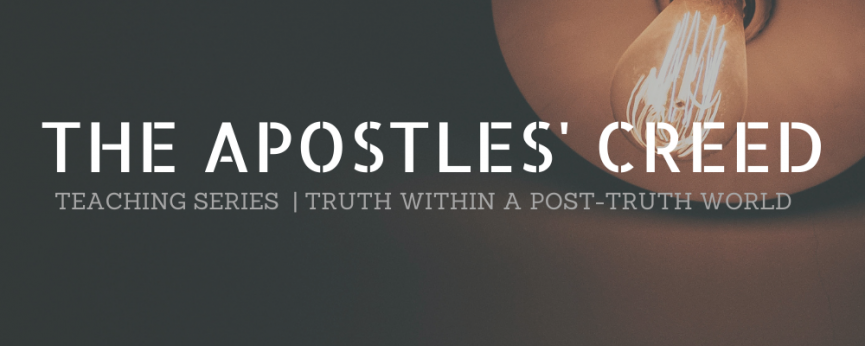‘In baptism nobody is invited to come up with their own personal statement of belief. All are invited to be immersed into a relaity beyond themselves and to join their individual voices to a communal voice that transcends them all’.
(Ben Meyer)
It is commonly believed that the Creed developed out of the confession of faith that was made at the time of baptism where believers publicly declared their belief in God the Father, Son, and Holy Spirit. It is this link between an individuals choice to be baptised and the confession of the creed that causes Theodore Jennings to emphasise the importance of personal ownership of this faith: [1] He says that ‘[making this confession is] not something that can be done on behalf of another but is something which must be undertaken for oneself’.[2]
Therefore, first of all, it should be acknoweldged that the ‘I’ that speaks in the creed is firstly the individual ‘I’ of the one who has come to believe in the good news and has made a personal decision of faith in response.
But our personal faith is subject to its ups and downs, its high and lows, and so it is important to have something to anchor ourselves to during times of doubt or questioning. Kathryn Greene-McGreight highlights this aspect of the Creed and openly admits that ‘sometimes you literally cannot make it on your own, and you need to borrow from the faith of those around you’. Shae says that sometimes you ‘cannot even recite the creed unless [you are] doing it in the context of worship, along with the body of Christ’.[3] It is when our individuals faith might be weak that we can then draw on the faith of others through practices such as the confessing of the creed.
‘sometimes you literally cannot make it on your own, and you need to borrow from the faith of those around you’
K. Greene-McGreight
However, precisely because of this communal element to confessing the creed, it is important to note that the historic context of the recitation of the creed has been the communal worship of the gathered church. Traditionally believers would be invited to stand and confess the creed and so there would be a sense of affirming the truth of the words together as a community so that the ‘I’ that speaks incorporates all those that are gathered together. Ben Meyers pushes this even further and says that the voice that speaks is not just the voice of those in that particular community but that it is the ‘I’ of the whole body of Christ. He says that ‘when we say the Creed we’re not just expressing our own views or our own priorities, we are joining our voices to a great communal voice that calls out across the centuries from every tribe and tongue’. He goes on to declare that ‘it is then that [we] saying something of deep and lasting importance. It is then that [our] words have roots.[4]
‘In confessing the faith of the church … it is then that I am saying something of deep and lasting importance. It is then that my words have roots’!
Ben Meyers
Therefore, I am suggesting that when we recite the creed together and begin with that simple word ‘I’, we are making both a deeply personal confession of faith but that the personal aspect of this confession is bound and wrapped up together with the historic and universal claims of the church. The ‘I’ in the phrase ‘I believe’ represents both the individual Christian and the whole body of Christ.
[1] Theodore W Jennings, Loyalty to God: The Apostles’ Creed in Life and Liturgy (Nashville: Abingdon Press, 1992), 13.
[2] Jennings, 13.
[3] Kathryn Greene-McCreight, Darkness Is My Only Companion, 88.
[4] Benjamin Myers, The Apostles’ Creed: A Guide to the Ancient Catechism, 2018, 11.
.
As always, we would love to hear any thoughts, reflections, questions, or feedback you might have about this, so please do take a moment and leave a comment below!

